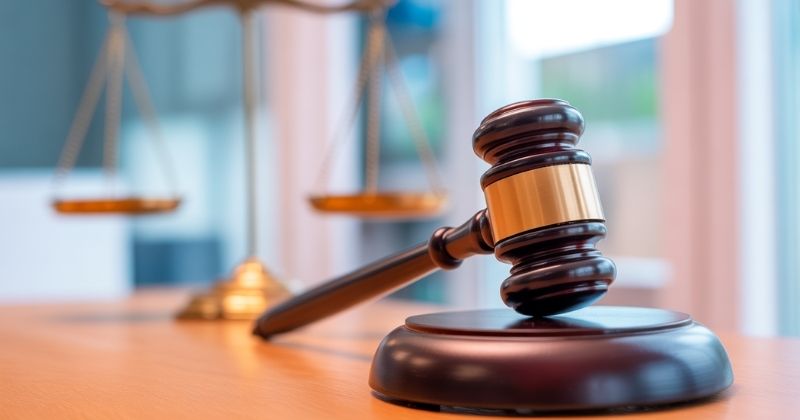
Unsolicited spam calls have become such a widespread problem across South Africa that a growing number of people have chosen to stop answering their mobile phones altogether, preferring instead to communicate through internet-based services such as WhatsApp.
Key Takeaways
- Spam calls dominate networks: Between 80% and 90% of calls received by some South African mobile users are spam, pushing many to avoid answering unknown numbers altogether.
- Regulators and operators under pressure: ICASA and mobile networks face growing demands to act, as spammers unlawfully use mobile numbers, spoof identities, and exploit prepaid SIMs to evade detection.
- Stronger laws through POPIA amendments: New rules effective April 2025 require stricter consent and record-keeping by telemarketers, while also giving consumers more authority to demand data deletion and protection.
About Arcadia Finance
Arcadia Finance makes borrowing easy. Apply free of charge and compare offers from 19 NCR-registered lenders. With a fast application and secure choices, you’ll find the loan that fits your financial goals.
Voice Calling Under Serious Threat
The future of traditional mobile voice calling was already uncertain due to ongoing technical shifts within the telecommunications sector, where data usage has overtaken voice as the primary driver of revenue for most mobile operators.
Nevertheless, voice calls remain an important form of communication, particularly for individuals who prefer speaking directly to another person when conducting business transactions or when maintaining contact with family members and friends.
This method of communication is now at risk of further decline, as the surge of spam calls has become so overwhelming that many mobile subscribers are unwilling to pick up their phones unless they recognise the number of the caller.
Tip: Consumers are increasingly advised to use smartphone features like “silence unknown callers” or install call-filtering apps to automatically block spam, while still allowing important calls from saved contacts to get through.
As South Africans face rising nuisance calls and deteriorating trust in telecom services, the article South Africa to Introduce New Laws Targeting Spam Calls explains the latest legal changes aimed at curbing these intrusive calls and protecting consumers.

Abuse of Mobile Numbers by Spammers
Adding to the problem, numerous spam callers have been found to be breaking regulatory rules by making use of mobile numbers unlawfully for call centre activities that are operated from fixed office premises.
Such practices are a direct violation of the Numbering Plan Regulations of 2016 and also amount to an act of unfair competition within the telecommunications industry.
It is easy to understand why spam callers resort to this strategy. South African consumers have become highly suspicious of calls originating from 087 number ranges, which are almost always associated with unsolicited sales calls. As a result, spammers have shifted to using mobile numbers in order to disguise their true identity.
The Internet Service Providers’ Association (ISPA) noted that as cold calls from easily identifiable number ranges are increasingly ignored by consumers, the unlawful practice of deploying mobile numbers for call centre operations has risen sharply.
The regulations of the Independent Communications Authority of South Africa (ICASA) expressly forbid the use of mobile numbers from a fixed geographical location. Despite this, such prohibitions have done little to deter determined spammers from continuing with their practices.
According to ISPA, the tactic works because spammers know that calls originating from mobile numbers are far more likely to be answered. The association has therefore called for a shift towards the proper use of officially assigned geographic numbers to help restore trust in voice calling.
Some outbound call centres appear to have been granted mobile numbers by mobile network operators or their service partners, while others simply spoof existing numbers or fabricate false mobile numbers altogether.
It has also emerged that certain call centres are making use of prepaid mobile SIM cards bundled with unlimited calling packages. Once these SIM cards exceed the fair usage policies of the mobile operator and become flagged, they are replaced quickly and cheaply, enabling large-scale mass calling operations to continue with very little disruption or cost.
ISPA has publicly urged ICASA to take decisive measures to curb this growing problem and to end the abuse of mobile numbers that is currently subjecting South Africans to excessive levels of voice call spam.
South Africa is not alone in this battle. In the United States, spam calls became such a crisis that regulators introduced STIR/SHAKEN protocols in 2021 to authenticate caller IDs. A similar system may one day be necessary in South Africa to restore faith in phone calls.

Spam Calls Overwhelming Networks and Consumers
The sheer scale of the issue is evident in the experiences of everyday mobile users, with many South Africans reporting that the majority of the calls they now receive are spam. This widespread frustration has led people to simply avoid answering unknown calls entirely.
A test conducted by BusinessTech using one of its mobile numbers demonstrated that between 80 percent and 90 percent of all calls to that phone were identified as spam. Numerous other consumers have reported encountering similar patterns.
For professionals whose work requires them to answer calls, the situation has become particularly intolerable. For instance, veterinarian Dr Hermien Viljoen, who works as a small animal surgeon, explained that she has no choice but to answer incoming calls in case they relate to her patients. Yet she still receives an overwhelming volume of unsolicited calls each day, making telemarketing in South Africa appear completely excessive.
The scale of spam calling has led many to question why mobile networks are not actively blocking these calls before they reach consumers.
Vodacom has explained that it does not monitor the actual content of communications travelling across its network and therefore cannot distinguish whether a call is legitimate or spam. To do so would constitute unlawful interception of communications under the Regulation of Interception of Communications and Provision of Communication-Related Information Act (RICA).
The operator has, however, indicated its willingness to cooperate with authorities where lawful measures are introduced that would allow for better management of spam activity.
Tip: Professionals who cannot risk missing calls, such as doctors or lawyers, can set up a separate number exclusively for clients or patients while keeping their main number private. This helps reduce exposure to spam.

Stronger Laws and New Regulatory Measures
The persistent wave of spam calls in South Africa has prompted lawmakers to introduce new regulatory provisions, particularly through amendments to the Protection of Personal Information Act (POPIA), which have been tailored to deal with the issue more directly.
The amendments give consumers greater control when requesting that companies delete their personal information, while also placing stronger responsibilities on companies to ensure they obtain and retain proper consent before keeping or using such data.
Legal specialists at Cliffe Dekker Hofmeyr stated that South African consumers could hardly be blamed for feeling as though nearly every second phone call they receive is spam, given the scale of the problem.
With modern technology making it easier for telemarketers to reach large numbers of people and with data breaches exposing more personal information, the volume of unsolicited calls has continued to expand at a relentless pace.
Although POPIA came into effect in 2020 with the aim of protecting individuals against the sourcing and trading of their personal information without consent, enforcement of the Act’s provisions has so far been minimal, leaving consumers largely unprotected.
In response to these shortcomings, regulators recently introduced amendments to POPIA, many of which specifically target the practices of telemarketing companies.
The revised provisions, which came into force in April 2025, followed the launch of the Information Regulator’s electronic portal for the reporting of security breaches. This portal has now been established as a mandatory tool for both private sector and public organisations to report data compromises.
Among the changes, the amended Act has introduced new definitions for “complaint” and “complainant”, aligning the language of the Act more closely with section 74(1) of POPIA.
Legal experts Sadia Rizvi and Simone Dickson of Cliffe Dekker Hofmeyr have emphasised that one of the most important changes concerns the obligations placed on marketing companies. These entities must now meet stricter requirements relating to obtaining consent, as well as keeping proper records to prove such consent was provided.
Crucially, the amendments also state that relying solely on opt-out clauses is no longer sufficient when it comes to telemarketing calls, as companies must demonstrate proactive compliance with consent rules if they are to continue operating lawfully.
Conclusion
The rise of spam calls in South Africa has eroded trust in traditional mobile voice calling, driving people towards digital platforms and leaving businesses and professionals frustrated by constant disruptions. With spammers exploiting loopholes in regulations and technology, the burden now falls on both ICASA and mobile networks to implement stricter safeguards while consumers make greater use of available protections such as POPIA and the Do Not Contact registry. The recent legislative amendments signal progress, but without firm enforcement and coordinated action, the country risks seeing voice calling collapse further under the weight of relentless unsolicited calls.
Fast, uncomplicated, and trustworthy loan comparisons
At Arcadia Finance, you can compare loan offers from multiple lenders with no obligation and free of charge. Get a clear overview of your options and choose the best deal for you.
Fill out our form today to easily compare interest rates from 19 banks and find the right loan for you.

